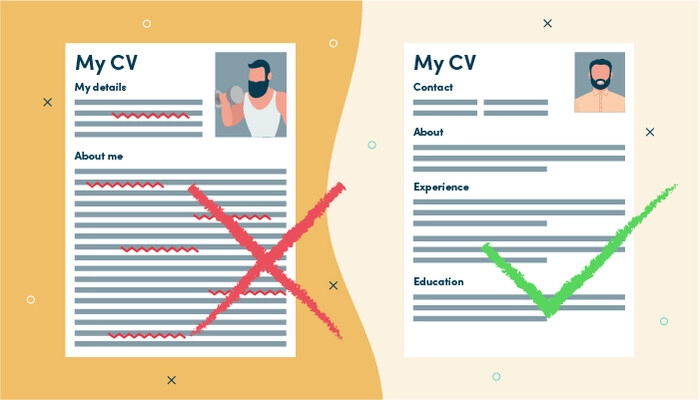The Importance of a Well-Crafted CV
As an experienced human writer, I know that your curriculum vitae (CV) is the first impression you make on potential employers. It’s a critical document that can make or break your chances of securing an interview and landing your dream job. A well-crafted CV not only showcases your qualifications, skills, and achievements but also demonstrates your attention to detail and professionalism. In today’s competitive job market, having a standout CV can give you a significant advantage over other candidates.
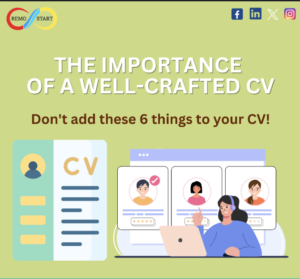
The Importance of a Well-Crafted CV
Understanding the Purpose of a CV
At its core, a CV is a comprehensive summary of your professional and educational background. It’s designed to highlight your relevant experience, skills, and accomplishments in a clear and concise manner. The primary purpose of a CV is to pique the interest of the hiring manager and persuade them to invite you for an interview. By crafting a compelling and tailored CV, you can effectively communicate your value proposition and demonstrate why you are the ideal candidate for the role.
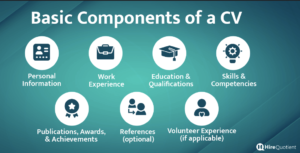
Understanding the Purpose of a CV
Key Components of a CV
A well-structured CV typically includes the following key components:
- Personal Information: Your name, contact details (phone, email, and address), and professional profile or objective.
- Education: Your academic qualifications, including degrees, diplomas, and certifications, along with the institutions attended and graduation dates.
- Work Experience: A chronological list of your professional experiences, including job titles, employers, dates of employment, and a brief description of your responsibilities and achievements.
- Skills and Certifications: A summary of your relevant skills, both technical and soft, as well as any professional certifications or licenses you hold.
- Additional Sections: Depending on your background and the job you’re applying for, you may include sections such as volunteer work, publications, awards, and hobbies.
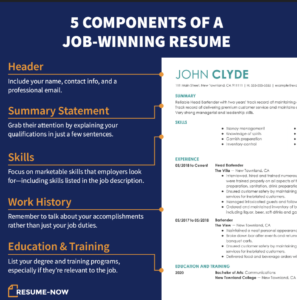
Key Components of a CV
Formatting and Design Tips for a Professional CV
The visual presentation of your CV is just as important as the content. A well-formatted and designed CV can make a lasting impression and help your application stand out. Here are some tips to consider:
- Consistent Formatting: Use a clear and consistent font, font size, and layout throughout your CV.
- Logical Structure: Organize your CV in a logical, easy-to-follow manner, with clear section headings and appropriate spacing.
- Appropriate Length: Aim for a concise CV, typically 1-2 pages in length, unless the job application specifically requests a longer format.
- Aesthetically Pleasing: Choose a clean and visually appealing design, with appropriate use of white space, bullet points, and formatting elements.
- Optimized for Digital: Ensure your CV is easy to read and navigate on digital devices, as many employers may review CVs electronically.

Formatting and Design Tips for a Professional CV
How to Write a Compelling Personal Statement or Objective
Your personal statement or objective is a crucial part of your CV, as it serves as a brief introduction to who you are and what you can offer. Craft a concise, well-written statement that highlights your key strengths, career goals, and how your qualifications and experiences align with the target role. Avoid generic or vague statements, and instead, focus on showcasing your unique value proposition.
Highlighting Your Education and Qualifications
Your educational background is an important component of your CV, as it demonstrates your academic achievements and the knowledge you’ve gained. List your degrees, diplomas, and certifications in reverse chronological order, providing the institution’s name, graduation year, and any relevant coursework, honors, or achievements. If you have significant professional training or specialized certifications, be sure to highlight them as well.
Showcasing Your Work Experience and Achievements
Your work experience section is the heart of your CV, as it showcases your professional capabilities and the value you can bring to the employer. For each role, provide the job title, employer name, dates of employment, and a concise description of your responsibilities and key accomplishments. Use action-oriented language to highlight your contributions and quantify your achievements whenever possible.
Including Relevant Skills and Certifications
In addition to your work experience, it’s essential to include a dedicated section highlighting your relevant skills and certifications. This can include both technical skills (e.g., proficiency in specific software or programming languages) and soft skills (e.g., communication, problem-solving, or leadership abilities). Be sure to tailor this section to the specific job requirements and demonstrate how your skills and certifications make you the ideal candidate.
Adding References and Contact Information
At the end of your CV, include a section for references and contact information. Provide the names, job titles, and contact details of 2-3 professional references who can attest to your qualifications and work ethic. Additionally, ensure that your own contact information, such as your phone number and email address, is up-to-date and easily accessible.
Tailoring Your CV for Specific Job Applications
One of the keys to a successful job search is to tailor your CV for each specific job application. Carefully review the job description and requirements, and then adjust the content and emphasis of your CV to align with the employer’s needs. This may involve highlighting relevant skills, experiences, or achievements that are most relevant to the target role.
CV Writing Mistakes to Avoid
When crafting your CV, it’s essential to be mindful of common mistakes that can undermine your efforts. These include:
- Grammatical and spelling errors
- Unclear or confusing language
- Irrelevant or outdated information
- Lack of quantifiable achievements
- Inconsistent formatting and layout
- Excessive length or verbosity
By proofreading your CV thoroughly and seeking feedback from others, you can ensure that your final document is polished, professional, and free of any such errors.
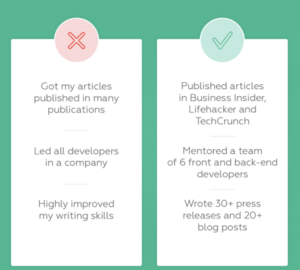
CV Writing Mistakes to Avoid
Using Keywords and Optimizing Your CV for Online Applications
In today’s digital job market, many employers use applicant tracking systems (ATS) to screen and filter incoming CVs. To ensure your CV is optimized for these systems, be sure to incorporate relevant keywords throughout your document. These keywords should be drawn directly from the job description and should reflect your skills, experiences, and qualifications. Additionally, format your CV in a way that is easy for ATS to parse and understand, such as using clear section headings and avoiding complex formatting.
Proofreading and Editing Your CV
Before submitting your CV, it’s crucial to carefully proofread and edit your document. This includes checking for spelling and grammar errors, ensuring consistent formatting, and verifying that all the information is accurate and up-to-date. Consider having a friend, family member, or professional review your CV to provide a fresh perspective and identify any areas for improvement.
Seeking Feedback and Professional Assistance
If you’re unsure about the effectiveness of your CV or want to ensure it’s the best it can be, consider seeking feedback from a professional resume writer or career coach. These experts can provide valuable insights and guidance on how to optimize your CV, highlight your strengths, and present your qualifications in the most compelling way.
Conclusion
Crafting the perfect CV is an essential step in your career development journey. By following the tips and strategies outlined in this guide, you can create a compelling and professional document that showcases your unique qualifications and increases your chances of securing your dream job. Remember, your CV is a reflection of your personal brand, so take the time to ensure it accurately and effectively represents your skills, experiences, and career aspirations.
